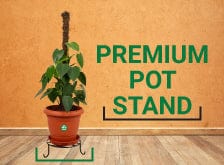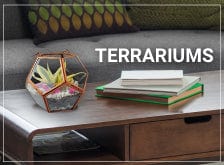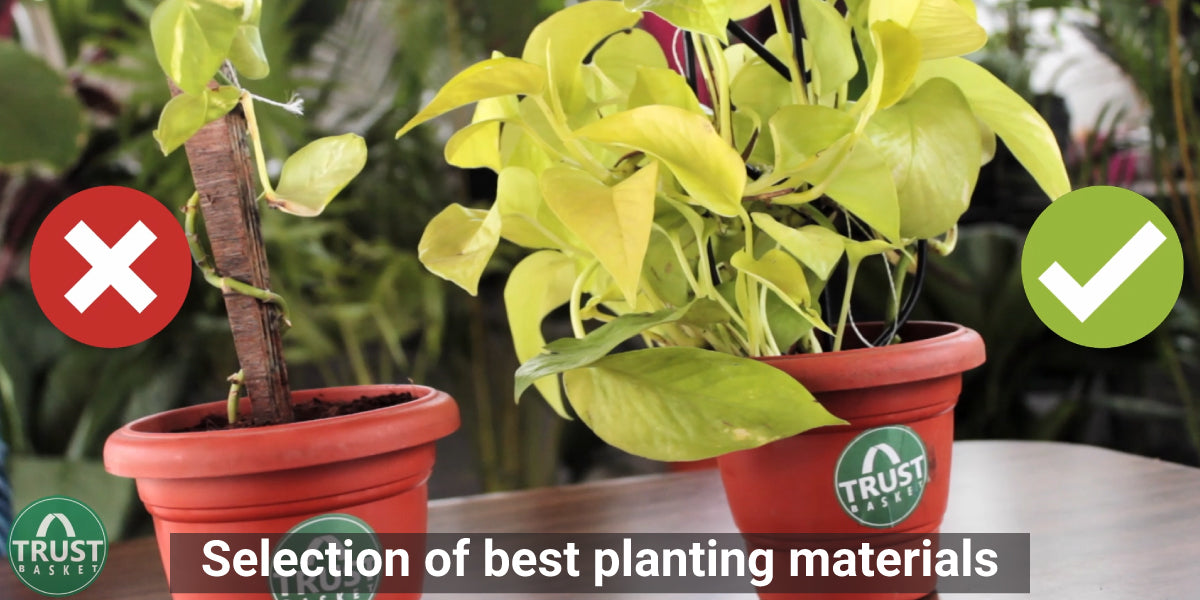How to Grow
From Seedlings to Saplings: The Science of Choosing Best Planting Material
Who doesn't like to have a beautiful garden at their home? Everyone does. A Healthy and beautiful garden demands quality input and a bit of hard work. That means when you have all the necessary conditions like the place, soil, water source, and plan to start a garden, the very next and most important thing for gardening is planting material.
Planting material refers to seeds, seedlings, corms, or stem cuttings. If you fail to select the good planting material or plants for your garden, you cannot expect a better outcome from those planting materials. That's why it's very important for you to select the best planting material or seeds for your garden.


Different planting materials:
- Seeds
- Seedlings
- Stem cuttings
- Corms
- Bulbs
- Suckers
You have many choices for starting a garden. You can start with any planting materials like seeds, seedlings, plants, or bulbs & corms. You can select any one among these and go for planting. But always check twice whether the selected planting material is of good quality. Here are a few points you need to keep in your mind about selecting the best planting material for your garden.
The selection of the best seeds:
Seeds that you select for your garden should be always
- Free from weed seeds and free of viral borne diseases. That's why it is always recommended to buy seeds from authenticated companies or sellers
- Whatever seeds you select, should grow in your region or climatic conditions where you live.
- And you have to consider the germination percentage also. You can go for selecting seeds with a germination percentage of more than 90%.

Selection of best seedlings:
- Consider the origin of seedlings i.e. from where they have grown: If the seedlings are from Himachal Pradesh and you are living in Rajasthan. you can't purchase them to grow successfully. Because those seedlings were adapted to the low-temperature region so they can't grow well in the high-temperature region. That's why once check with the shop keeper, from where did they bring the seedlings.

- Consider morphological and physiological quality: The seedling should be good at the morphological quality (appearance) and physiological quality (ability to adapt well to your climate & grow). Seedlings should not be broken, leaves should be green & healthy, and should have the healthy root growth. It should not be physically damaged. This means no damage to any part of the plant. So observe these features before buying the seedlings.

- Robust shoot and root growth: next feature to consider is the well-developed leaves, twigs, and roots. Do not select the slow-growing plants, with small leaves.
Do remember to check all these features before buying a seedling. Select the best plants for your garden and enjoy the gardening.
Selection of best bulbs and corms:
Bulbs and corms are mainly used for the propagation of flowering plants, tuberous crops, and bulbous crops. To get more flowers,
- Select the healthy and mature bulbs/ corms.
- Pay attention to size (Select bigger size corms): for getting healthy plant growth, you have to select the bigger sized bulbs and corms.


- Slightly squeeze the bulbs & corms. If they are soft, do not select those bulbs & corms.
- The next point to consider is, always avoid bruised bulbs.
Just check these simple points, when you want to buy the bulbs & corms.
Selection of best suckers:
For some of the plants, you have to use suckers for multiplying them. For example bananas, lilac, red raspberries are propagated or planted through suckers. It is worth discussing how to buy a robust and healthy sucker of your favorite plant. While buying banana suckers consider the shape of their leaves. Do not select broad leaved sucker plants. Suckers with sword shaped leaves should be selected.

( Image source )
- Do not buy small suckers.
- Do not buy suckers that may contain insects like weevils and nematodes
- If you buying banana suckers check the pseudostem. The stem of the banana is called the pseudostem. If that stem has some dark discolorations do not buy those plants. Because it may be due to some pests and diseases. If you buy such plants and bring home it may spread the disease to the other plants.
- Select the suckers that have sword shaped leaves instead of broad leaved ones as broad leaved plants may not perform well and result in less yields..
FAQs Related to Selecting Best Planting Material
1. How important is the selection of planting materials in the success of the crop/plant
Success of the crop always depends on type of planting materials and climatic conditions. how favorable the climate might be, if you start with the poor planting materials, the result will be always disappointing. So select/purchase planting materials from recognized or trusted sources.
2. What if my seedlings show up leggy?
Leggy seedlings can still grow better if the germination percentage of seeds/planting materials is about 85 % and are of good quality. They should be transplanted and provided with better resources like quality potting mix and suitable light conditions to grow healthier.
3. What are bulbs and corms?
Bulbs, corms, tubers and rhizomes are underground stem modifications but not roots from which a plant reproduces vegetatively. All these can be used as planting materials to start a new plant.
4. When should I separate a sucker from the banana plant?
5. When do we consider the seeds are of good quality?
- Seeds should be free of weed/other plant seeds.
- Seeds should be free of soil or seed borne diseases.
- Seeds should be free from insect or any other damage.
- Germination percentage should be 90%.
- Should be tolerant to temporary climatic variations.



